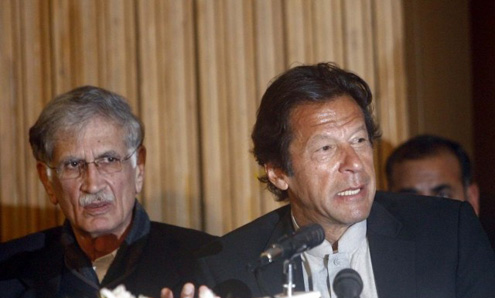 After a contentious 10-day standoff between Pakistani authorities and NATO forces in Afghanistan, the Torkham border crossing has been reopened for the transport of supplies to NATO forces embroiled in battle across the border. This resumption of the major NATO supply route comes after an official US apology from US Ambassador Anne Patterson and expressions of regret from Commander ISAF David Petraeus and Chairman Joint Chiefs of Staff Admiral Mike Mullen. It was obvious right from the start that Pakistan would sooner or later reopen the route. A permanent closure would come at the unacceptably high cost of US support. However, now that the Pakistani authorities feel that they have made their point to the US administration, it is back to business as usual. It has also been agreed that NATO officials will investigate how the NATO helicopter attack on Pakistani soil occurred, in which three Pakistani soldiers were killed. Both sides have also agreed on closer coordination to prevent the recurrence of such attacks.
After a contentious 10-day standoff between Pakistani authorities and NATO forces in Afghanistan, the Torkham border crossing has been reopened for the transport of supplies to NATO forces embroiled in battle across the border. This resumption of the major NATO supply route comes after an official US apology from US Ambassador Anne Patterson and expressions of regret from Commander ISAF David Petraeus and Chairman Joint Chiefs of Staff Admiral Mike Mullen. It was obvious right from the start that Pakistan would sooner or later reopen the route. A permanent closure would come at the unacceptably high cost of US support. However, now that the Pakistani authorities feel that they have made their point to the US administration, it is back to business as usual. It has also been agreed that NATO officials will investigate how the NATO helicopter attack on Pakistani soil occurred, in which three Pakistani soldiers were killed. Both sides have also agreed on closer coordination to prevent the recurrence of such attacks.
Now that the Pakistani government and military authorities have shown to the Pakistani people their ‘concern’ for the country’s sovereignty, a word of caution: one should not get carried away with euphoria at having cornered a superpower. The US has a long and begrudging memory, one that does not allow it to easily forgive and forget when it has been backed into a tight spot. Pakistan may be feeling vindicated right now but this glory may well be short lived. If this incident compels the US to find alternative supply routes, we may find ourselves deprived of US support in financial and political terms. As it is there is talk of Pakistan demanding compensation of millions of dollars for the damage and wear and tear to our highways because of Nato traffic, as well as a proposal to tax Nato trucks passing through our territory.
And when it comes to sovereignty, following a schizophrenic policy is ill advised. It seems that our sovereignty is compromised when NATO choppers cross into our territory but drone strikes are perfectly acceptable (they continue unabated). This does not make sense unless there are specific jihadi safe havens or rear bases we wish to protect, which could unravel if NATO takes matters into its own hands like it did in the ‘hot pursuit’ incident.
The establishment’s dual policy of giving sanctuary to a particular breed of terrorist it thinks may give it an edge in Afghanistan once the US and NATO troop withdrawal begins in July 2011 will most likely give diminishing returns as the withdrawal deadline approaches. There is considerable domestic political pressure on the Obama administration to withdraw with a significant victory intact. If that means targeting the sanctuaries we have given terror networks, our authorities should not be foolish enough to believe that the US will not do so.
In an ironic twist to the Torkham crossing reopening, 29 more NATO oil tankers were torched by militants in the Mithari area of Balochistan. These were supplies making their way to troops via the Chaman crossing. It must be kept in mind that the US will be mighty peeved at the continuous destruction of costly and vital NATO supplies in Pakistan, even if it is the TTP that is behind it. As an ally in this war, it is the responsibility of the Pakistani authorities, in the government as well as security establishment, to give protection to these convoys. The US may not look too kindly upon this complete lack of security for its convoys.It is time for Pakistan to revisit the strategic depth in Afghanistan policy. Whatever benefits are hoped for through support to the Afghan Taliban in that country’s approaching endgame could end up costing Pakistan far more than can be imagined at present – Dailytimes











